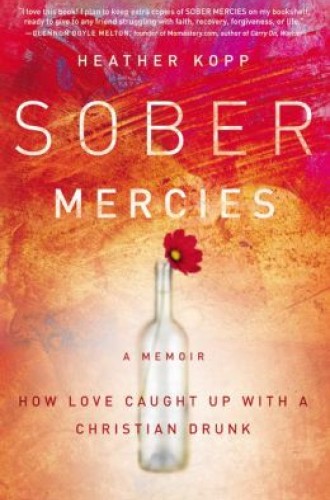Sober Mercies, by Heather Kopp
One in four children in the United States grows up in a household with an adult who drinks too much, according to the National Institutes of Health. That means that about seven of my third-grader’s classmates experience something akin to what Heather Kopp describes in her recovery memoir. Kopp, who has two children of her own and three stepchildren (all now grown), describes stashing mini wine bottles around the house, drinking herself into oblivion each evening and occasionally driving intoxicated with her children in the car.
Considering the destructiveness of alcoholism, there may be no such thing as too many recovery memoirs. During her own days of addiction, Kopp says, she read many such memoirs, but in a blog post published immediately before her book was released, Kopp explains how her book differs from the others. In most recovery memoirs, the epiphanic moment in which the addict wakes up to the horror that life has become and starts down the road to recovery occurs toward the end of the book, as the climax. In such narratives, recovery functions as a short and sweet denouement. When she was reading recovery memoirs during her worsening days of addiction, Kopp writes:
I needed to know, what did happen next? What happens after you quit the drug or the drink or whatever it was you were addicted to? How could a life devoid of one’s favorite and most necessary thing be anything but miserable? I needed to read a recovery memoir that was actually about recovery. I was desperate to hear a newly sober person talk about joy. And if possible, to hear from a Christian who had succumbed to addiction, quit, and come out the other side without losing God in the process.





